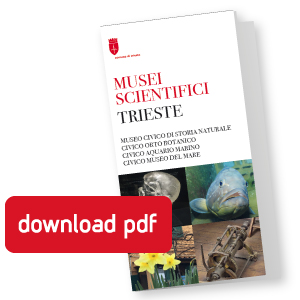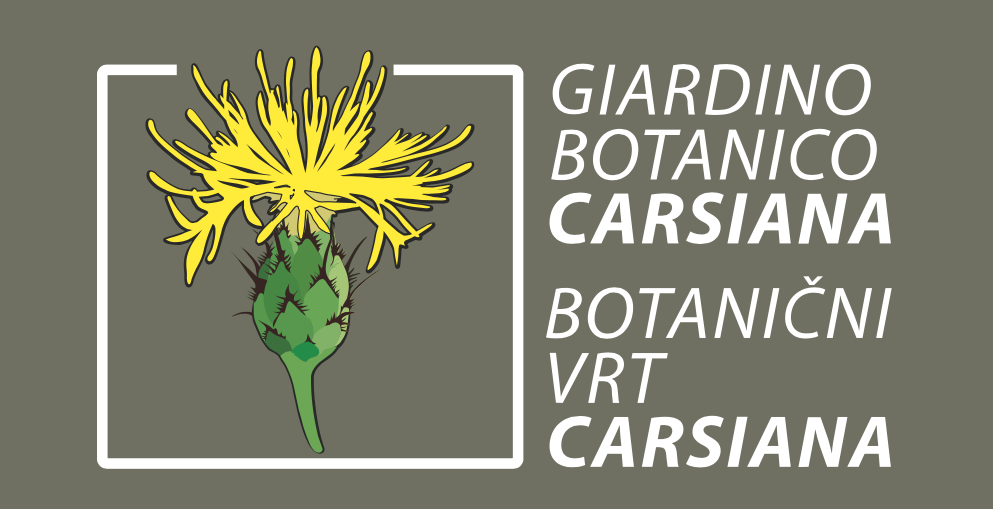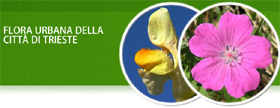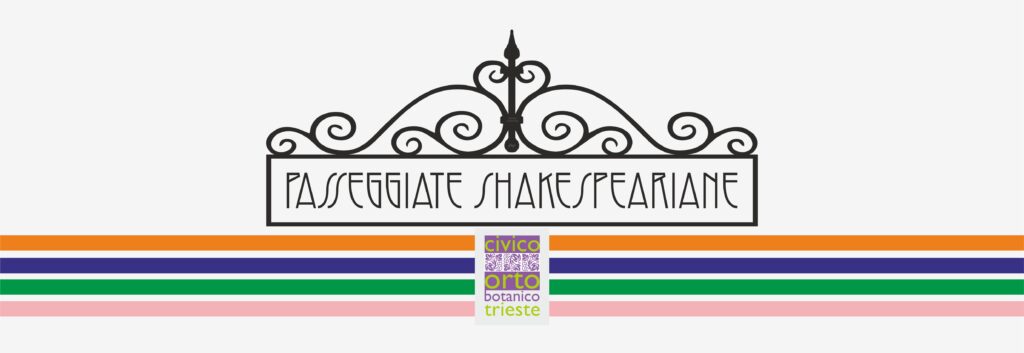
A new way to enjoy Shakespeare’s works, in particular A Midsummer Night’s Dream, is offered by the Botanical Garden of Trieste which suggests a quite original reading of the Dream, where flowers, plants and herbs take on a central role like true protagonists.
Scattered along the path of this extraordinarily fantastic, comic and romantic comedy, plants and herbs contribute to the poetry, the farce stirring laughter and the love vicissitudes of humans, mischievous fairies and other creatures that enliven the wood in the magic night described by the Shakespearian genius.
Inspired by this magic, the Garden with its plants recreates the stories, tricks and spells of the work.
Synopsis
It’s night. Two young lovers are fleeing into the wood near Athens, two others are chasing them unaware of the enchanted world they are entering where at night time mischievous fairies make their magic rituals. Here, a great confusion has been reigning since the fairy king and queen started arguing thus causing calamities among men. Misunderstandings, magic spells made with herbs and enchanted potions come in succession interweaving with grotesque situations when also a group of unlikely actors meets there to rehearse. Everything will unravel eventually, and the dream will dissolve along with the magic of a Midsummer Night.
Act I
Theseus, duke of Athens, about to marry his beloved Hippolyta, is trying to convince Hermia to marry Demetrius. She loves Lysander and together they will flee and stop in the wood at night. Demetrius and Helena, the latter Hermia’s friend, will follow them. In another part of the town, Quince, the leader of an extravagant group of actors decides they would meet in the same wood to rehearse the play they will perform in honour of Theseus’ wedding.
Theseus
But earthlier happy is the ROSE distill’d,
Than that which withering on the virgin thorn
Grows, lives and dies in single blessedness.
Quince
At the duke’s OAK we meet!
Act II
The wood is the place where everything happens. At night, it is inhabited by the fairies led by their king and queen, Oberon and Titania, now quarrelling between them. Helped by the faithful and mischievous Puck, Oberon wants to play pranks on her by using the juice of a magic flower to make her fall in love with the first creature she will see.
Fairy
And I serve the fairy queen,
To dew her orbs upon the green.
The COWSLIPS tall her pensioners be:
In their gold coats spots you see.
Oberon
It fell upon a little western flower,
Before milk-white, now purple with love’s wound,
And maidens call it LOVE-IN-IDLENESS.
Fetch me that flower; the herb I shew’d thee once:
The juice of it on sleeping eye-lids laid
Will make or man or woman madly dote
Upon the next live creature that it sees.
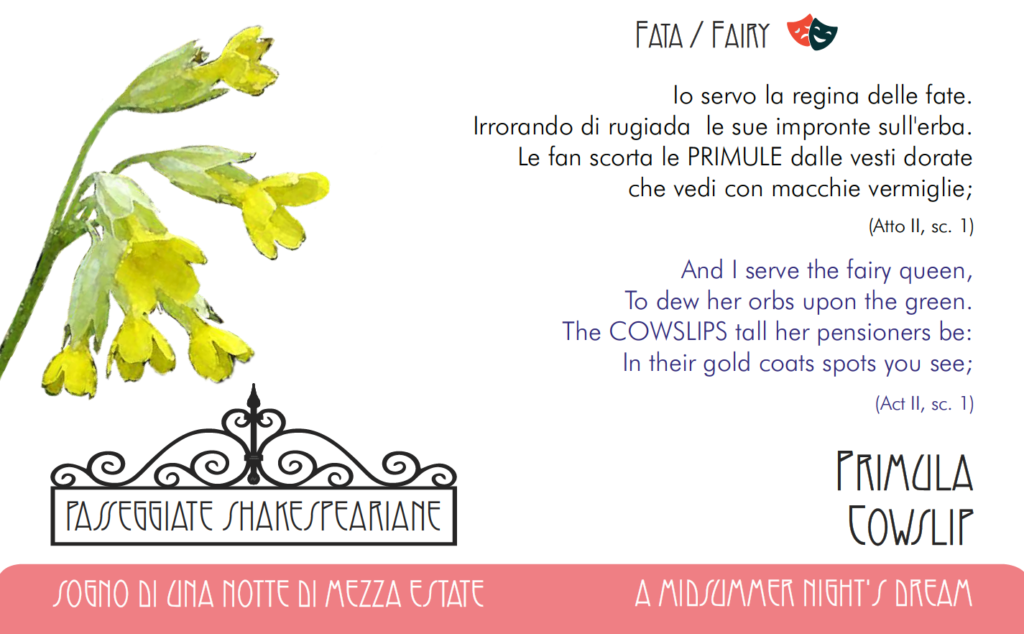
Act III
Due to the dew of the love-in-idleness flower the naughty Puck has shed on her eyes, Titania has fallen in love with Bottom, the lead actor of the rickety company, whose head has jokingly been transformed by Puck into an ass head. Here she is ordering her fairies to attend to her improbable lover while Oberon is ordering Puck to settle things among the human lovers as he has mistakenly spilled the magic dew on the wrong lover’s eyes.
Titania
Feed him with APRICOCKS and dewberries,
With purple grapes, green figs, and mulberries;
The honey-bags steal from the humble-bees.
Oberon
Flower of this purple dye,
Hit with Cupid’s archery,
Sink in apple of his eye.
Act IV
Titania is cuddling Bottom’s ass head while uttering loving words, then she also falls asleep. Here, Oberon himself intervenes to unravel the enchantment on Bottom, who wakes up and returns to his actor friends, and on Titania who will completely forget the nightly events. Peace and love are restored among the fairies who leave the scene as daylight is approaching.
Titania
Come, sit thee down upon this flowery bed,
While I thy amiable cheeks do coy,
And stick musk-roses in thy sleek smooth head,
And kiss thy fair large ears, my gentle joy.
So doth the woodbine the sweet honeysuckle
Gently entwist; the female IVY so
Enrings the barky fingers of the elm.
O, how I love thee! how I dote on thee!
Oberon
See as thou wast wont to see:
Dian’s bud o’er Cupid’s flower
Hath such force and blessed power.
Now, my Titania; wake you, my sweet queen.
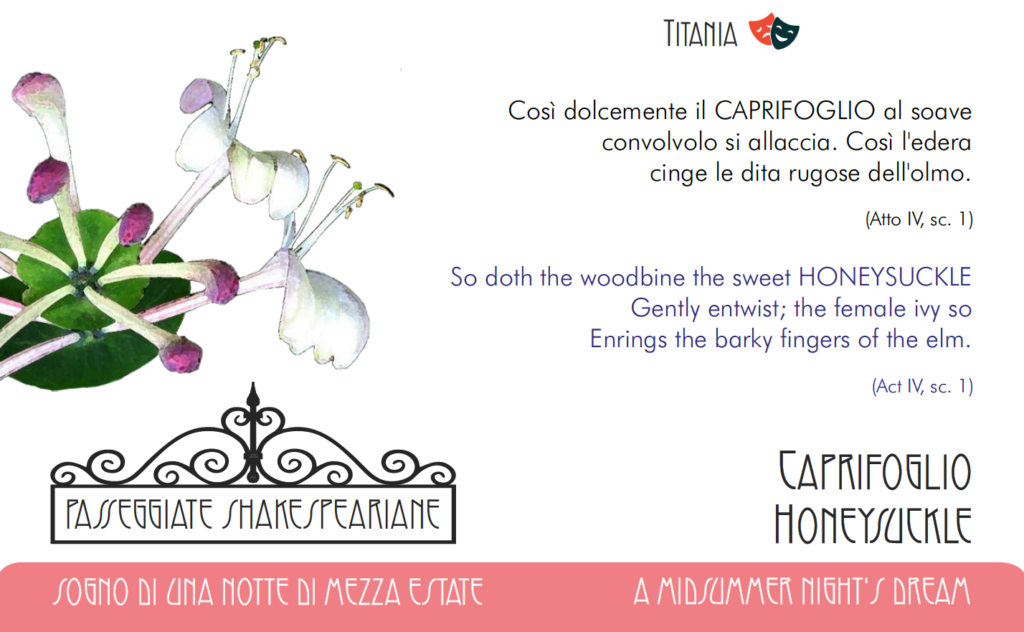
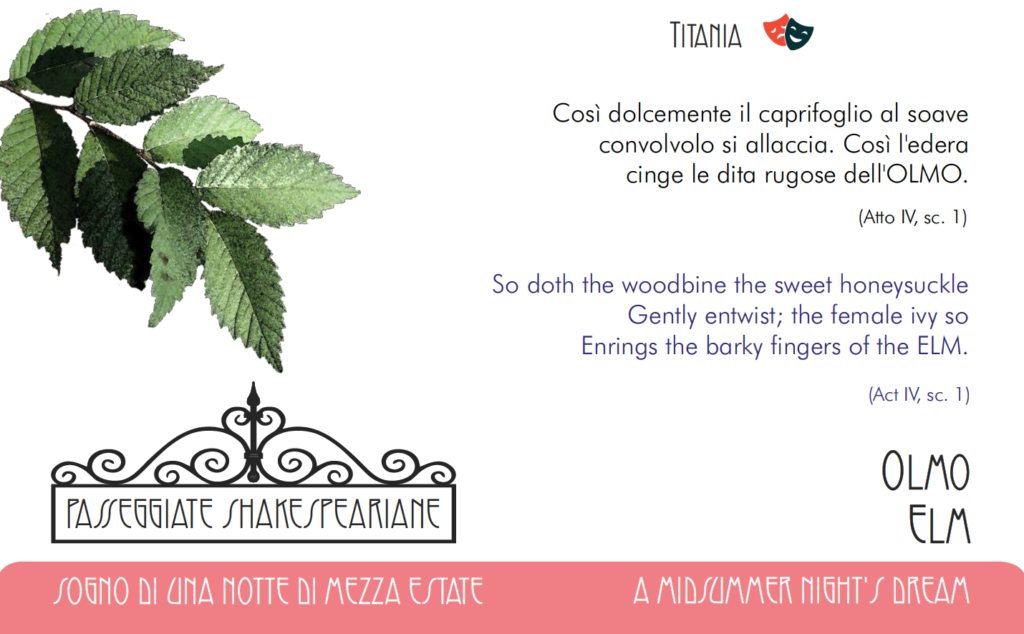
Act V
It’s broad daylight. In the palace in Athens weddings are celebrated, those of Theseus and Hippolyta, the queen of the Amazons, of Hermia and Lysander, of Helena and Demetrius.
Then the time comes for the play to be performed. It is a ‘tragic farce’ of love and death as presented by one of the actors, Quince, embodying the Prologue.
The fairies will be back as night is approaching again and the mischievous Puck addresses the audience wishing everybody Good Night.
Thisbe (the actor Flute), desperate on seeing her dead lover Pyramus (the actor Bottom), who has stabbed himself, turns to him with these words:
These My lips,
This cherry nose,
These yellow COWSLIP cheeks,
Are gone, are gone…

